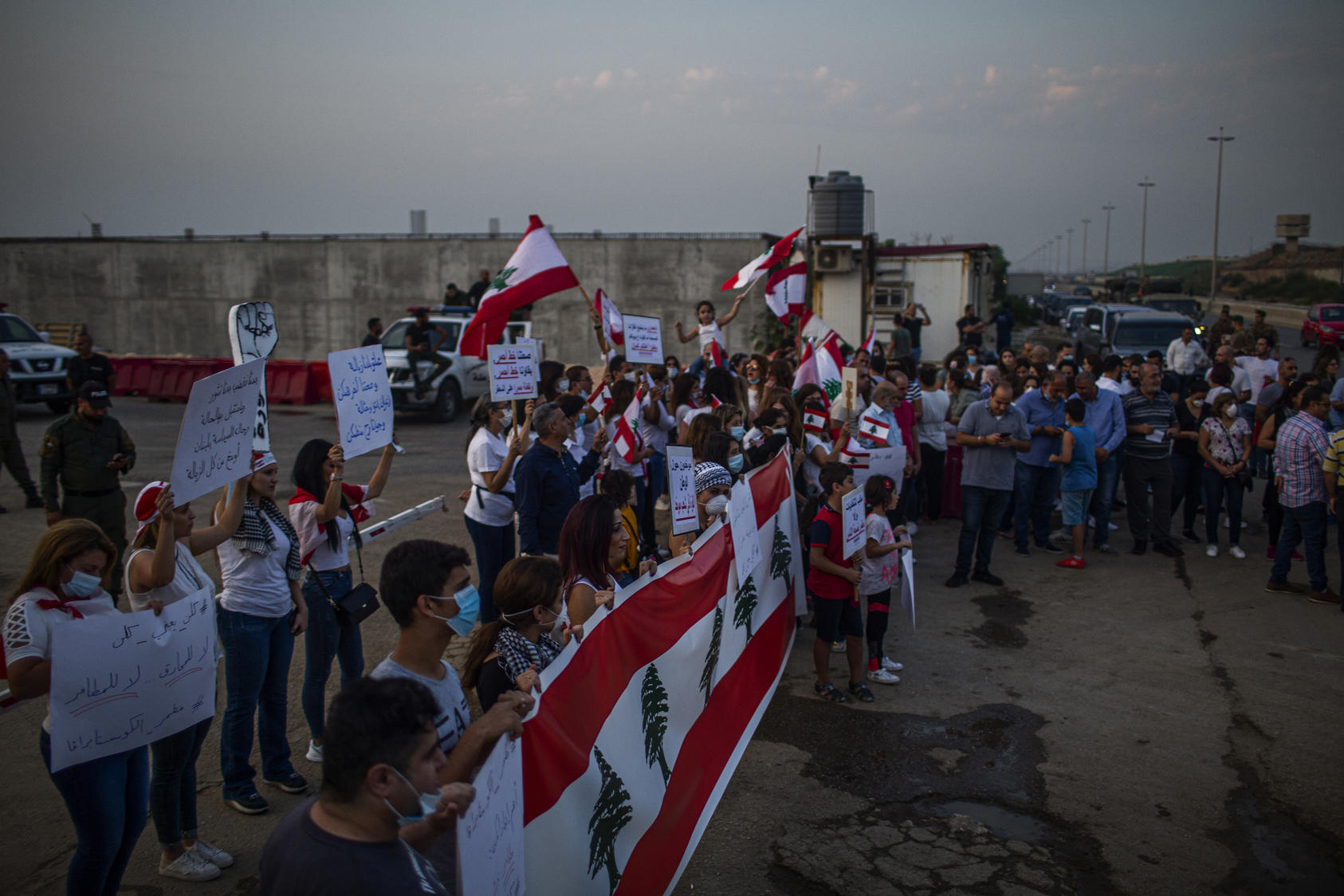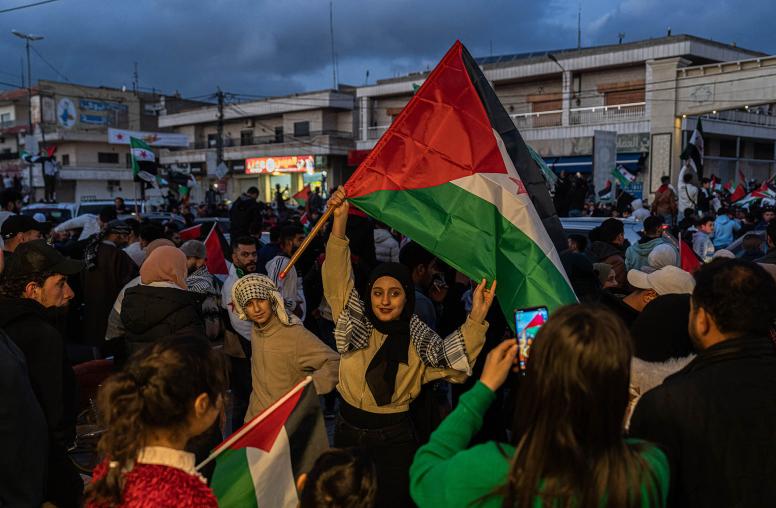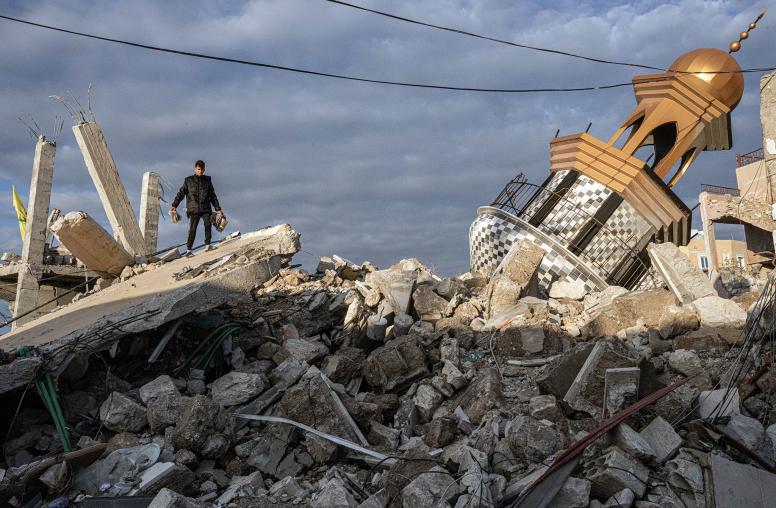Lebanon’s Election Offers Lessons for Now and the Future
While some of the results indicate progress, it is unlikely that in the short-term Lebanon will see the structural changes it needs.
Editor's Note: This article was originally published by the Arab Weekly.
As the minister of interior announced the results of Lebanon’s May 15 legislative elections, speculation began about whether or not the configuration of the new parliament foretold a brighter future for the tormented country. While some of the results indicate positive breakthroughs and progress, there are several nuances indicating that much greater change is still needed to put the country on a steady path to recovery.

At least 80 percent of parliamentary seats were won by the same traditional corrupt parties or figures that have formed the political system for decades. This figure may be stunning to some, given that these are the parties and figures directly responsible, certainly to varying degrees, for Lebanon’s current predicament.
However, a closer look at the results of the 2022 elections reveals that the commitment of hundreds of thousands of voters and the relentless efforts of Lebanon’s diaspora groups actually led to some important breakthroughs in a context of restrained electoral competition. Although these breakthroughs would not have been possible without the convergence of other contextual factors (such as the nature of the electoral law, maneuvers in some districts by traditional parties and withdrawals of some candidates), they do indeed constitute a basis for hope, point to some immediate political gains and most importantly call for a larger mobilization in favor of change in the upcoming 2026 elections.
Flaws in the Process
Without consideration of the results, it is obvious that several flaws of the electoral process continue to allow or encourage fraud and undermine the legitimacy of future popular consultations.
Outrageous and uncontrolled electoral spending, the persistent buying of votes, iniquitous paid-for media appearances, an electoral management body (EMB) entirely subdued by the ministry of interior, lacking funding, a restrictive voting procedure that requires traveling to one’s hometown to vote, intimidation (at gun point in some cases), impunity and co-optation (or inaction) of the judiciary as well as other violations, all need to be addressed as soon as possible, not a few weeks before the 2026 elections.
The starting point for an overdue and much needed electoral reform would be the establishment of a robust independent EMB and the adoption of voting mega centers. While the final reports of the main Electoral Observation Missions (including the European Union, LADE) have not yet been published, it is expected that the final verdict, as foreshadowed by the statement of the international support group for Lebanon, will consider that the multiple infractions and irregularities do not substantially challenge the outcome of the election.
As in 2018, the international community will endorse the outcome of a deceitful consultation, call for reforms but will not use any of its leverage tools to push for these reforms.
The Performance of Traditional Parties
Despite notable setbacks and with the exception of the disoriented constituency of former Prime Minister Saad Hariri (who decided to boycott the vote), most of the other parties survived the elections and proved, once again, that they can count on a core, loyal support base regardless of how badly they behave in both the government and parliament.
As the country faces its largest peace-time economic and financial crisis, compounded by the reverberations of COVID-19 and the Port of Beirut explosion, voters did not seem to find enough ground to oust a consortium of complicit criminal politicians linked by interconnected interests. Such a situation defies China’s Emperor and “Martial King” Cao Cao’s basic premise that “human nature advances towards gain and retreats from pain." It appears that the Lebanese citizen prefers pain over gain, so long as the instinct of fear is suppressed, even hollowly, by a corrupt and criminal “leader.”
The main political parties did not see a drastic decrease in their popular votes compared to 2018, with the notable exceptions of the Christian Free Patriotic Movement (FPM, founded by the current President of the Republic Michel Aoun and now headed by his pro-Hezbollah son-in-law, former minister Gebran Bassil) and the notorious Al-Kataeb, each losing around 31 percent of their popular votes. The rest, including the ultra-corrupt Amal movement, either had slightly fewer, equal or even more votes, despite the fact that over the last two years, the ability of these parties to provide direct assistance to their constituencies has been curtailed by the financial and banking crises. This brings the “fear factor” in Lebanon’s identity-based politics to the forefront.
Traditional, mostly feudal, political leaders constantly cultivated fear of the other as a justification for their unchallenged leadership. The surge in the popular votes of the hardline Christian Lebanese Forces (LF) party as well as the surprising performance, against all odds, of Walid Jumblatt, who mobilized his supporters under the banner of confronting an extermination campaign, prove that the apprehensions of the demographic minority groups continue to shape their political and electoral behavior. Thus, efforts should be pursued to gradually shift the political paradigms in Lebanon from being identity-based to cause-based. It is deplorable that in this same context of radicalization of Lebanon’s politics, Hariri’s boycott allowed bigger gains for radicalized and potentially violent groups such as Al-Jamaa Al-Islamiyah, Al-Ahbache or retired general and former minister Ashraf Rifi, known for his fanatical diatribes against Hezbollah, its allies and their constituencies.
Hezbollah's Influence
Since May 15, several media outlets and expert analyses emphasized the losses incurred by Hezbollah in the elections. While it is true that the “Party of God” lost many seats usually taken by its non-Shia allies, there are still other spheres in which Hezbollah maintains and even advanced its influence.
First, one must consider that the Hezbollah-led majority reached 71 seats in 2018 but decreased by five members of Parliament (MPs) after October 2019. So, the 2022 losses should be calculated against 66 not 71 seats. Also, over the years, Hezbollah has adopted a multidimensional strategy comprised of multiple political assets to complement its military apparatus. In addition to forming a political belt of non-Shia allies (Christians, Alawites, Druze and Sunnis), the assets included a massive infiltration of the public administration and other entities including the general labor union and transportation union.
Most importantly, Hezbollah and its main ally, Nabih Berri’s Amal movement, championed an exclusive representation of the Shia community through the control of all the parliamentary seats allocated to their community and the entire quota share of the Shias in any government. In Lebanon’s power-sharing system, this means that they can veto any decision or void any session of the parliament or the government, simply by asking all Shia members not to attend, or vote against.
Of these three avenues of political leverage, the one and only area that Hezbollah lost influence in this election is the belt of non-Shia allies. Through frantic and successful efforts by the party to ensure that all the preferential votes of their constituencies went to their Shia candidates, the vote had to come at the expense of their own allies, with the exception of Aoun’s FPM which still benefited from Hezbollah’s electoral largesse. Hence the surge (+16%) in the total number of popular votes obtained by Hezbollah compared to 2018.
This increase in preferential votes was counterbalanced by an unprecedented number of spoiled ballots (around 6,000 in the South II district alone) indicating a strong resentment by Hezbollah’s own popular base against the many traditional or corrupt figures endorsed by the party. Being unable to vote outright against Hezbollah’s lists, one form of protest was to cast a spoiled ballot.
Even if the total number of seats currently claimed by the pro-Hezbollah coalition is three to five short of the 65 needed for an absolute majority, the party can still bet on the usual swings of other blocs such as Walid Jumblatt, some independents and anti-Israel change-oriented MPs when its existence or vital interests are under threat.
Ultimately, the party can still resort to intimidation and direct action, mobilizing its armed members when political means do not work out. Therefore, aside from the modest significance of the few breakthrough instances in this election, the actual implications on Hezbollah’s real influence should not be over-estimated since the party retains the ability to use other means, including its military might, to leverage political decision-making in Lebanon.
The Change Parliamentarians
For the first time in Lebanon’s modern history, a sizeable number of candidates from outside the traditional political structures won this many seats in the parliament. While around 30 MPs claim to represent the “Change Movement,” there is a solid block of 13 MP with enough commonalities to establish a new way of doing business in the country’s legislative assembly. For such an endeavor to succeed, this group of 13 MPs, their allies and supporters, as well as public opinion, need to remain sober and pragmatic.
Without falling into excessive pessimism, it is only fair to acknowledge that the current context is unfavorable to structural political, economic or social changes. While the parliament remains largely under the control of traditional and/or corrupt parties, the domestic ramifications of Hezbollah’s regional agenda(s) will persist, including loose border control and adversarial relations with some GCC countries. The party’s excess of power, impunity, veto power and uncontrolled military capabilities will shape Lebanon’s political landscape for years to come.
The banking conglomerate, in association with other influential political and religious actors, remains a powerful speculator and spoiler and continues to refuse any attempt to endorse a financial recovery plan that includes an equitable distribution of the sector’s losses incurred over the years. As a behavioral consequence of greed, the social roots of an overt and extremely powerful culture of corruption can hardly be tackled in the midst of a severe crisis such as Lebanon’s. Without social and cultural change, very little can be done to curb corruption in the public and private sector and/or to move forward with structural political, economic, fiscal or social reforms.
Accordingly, and because the “ambition of respectability does not make one a saint,” the group of newly elected, reform-oriented MPs needs to maintain a balance between objectives, tools and resources while managing the expectations of the public. Overpromising will only cause harm, as will weak communication or the lack of thereof, especially since these 13 MPs are already targeted by harsh slander campaigns aimed at discrediting them.
It is naïve to believe that the 13 MPs can form one coherent parliamentary bloc that will survive the tumultuous four-year mandate. However, there is no reason why these MPs should not consider tactical alliances among themselves and with other traditional parties in the parliament when it comes to a specific draft law, vote or position. Most importantly, as a small opposition group, they should emphasize the accountability of executive power rather than a wholesale ideological discourse to fix Lebanon’s endemic problems, while being a minority in the parliament and not represented in the government.
As any other collective of human beings, some of the new MPs will prove to be incompetent, opportunistic or corrupt. Given the sensitivity of the issues at stake and given that they are new to their roles, all MPs claiming to be “change-oriented” should start by establishing a transparent and rigorous accountability mechanism for their own performance. Potential disappointment from any lack of performance or misdeeds of some should not stymie the experience of having a group of reform-oriented MPs who are not affiliated with traditional parties and who deserve the benefit of the doubt.
Looking Forward
If anything, many Lebanese still rejoice over the loss of disreputable and obnoxious figures who dominated Lebanon’s political life for years, such as Elie El-Ferzli, Talal Arslan, Assad Hardane or Marwan Kheireddine. The fact that the LF MP Antoine Habchi made it to the parliament in Baalbeck-Hermel despite an overt campaign of intimidation by Hezbollah against his allies and supporters, the loss of one seat by the LF in Bcharre to the pro-Syrian neo-feudal figure William Tawk, the tenuous success of Frangieh in his own breeding ground Zgharta and other surprises confer a special significance on this election, in that no political group feels safe enough or in full control of its constituency.
This will force even the traditional parties to revisit the way they conduct business, leaning toward closer scrutiny and greater selectiveness in the choice of their political representatives. Moreover, the small but mighty impact of the diaspora vote adds to the assets that voters, inside and outside Lebanon, may optimize in the future.
It should not be discounted that the 2022 consultation constitutes a political precedent that needs to be capitalized upon and built out for a better outcome in 2026 or before, if this parliament does not make it to the end of its term. At the same time, Lebanon is still in a calamitous free fall that needs to be stopped or at least decelerated through two inevitable measures: continued, but conditional financial and political support to the Lebanese Armed Forces and Internal Security Forces to prevent their collapse, combined with a financial recovery plan asserting an equitable distribution of losses among all stakeholders.
These measures surpass the capacity of the Lebanese themselves and require consistent international support.



